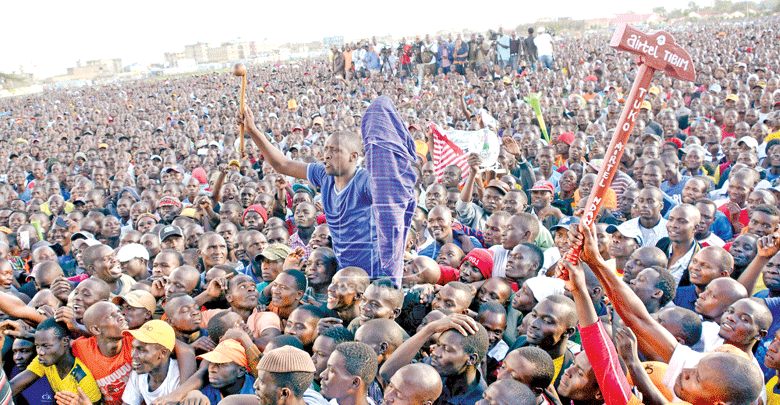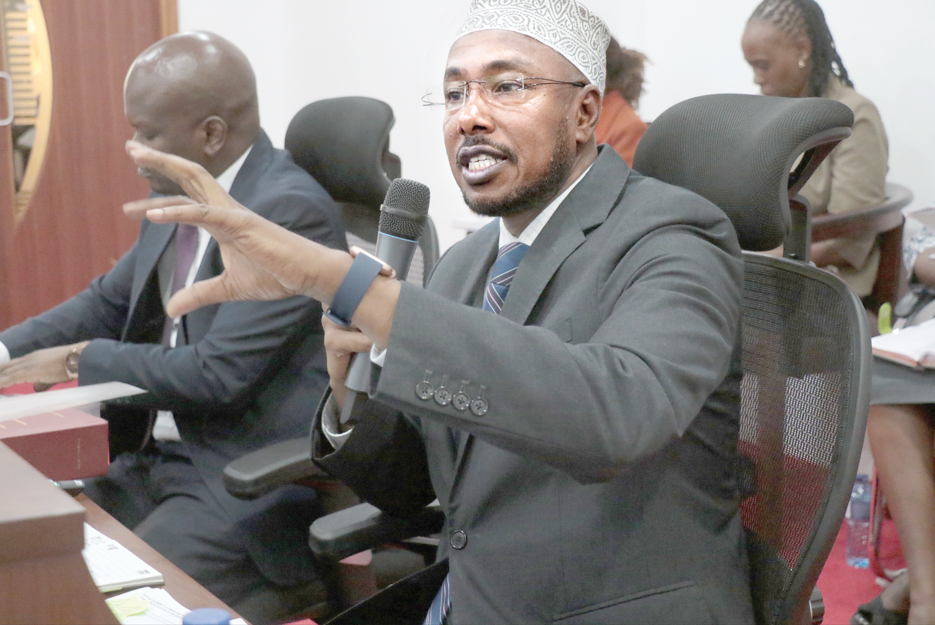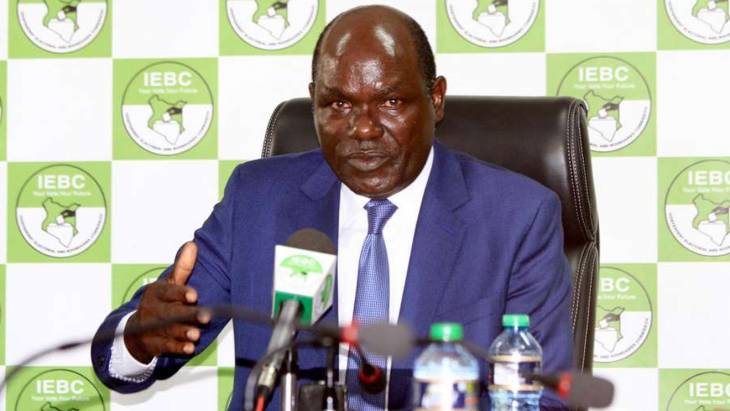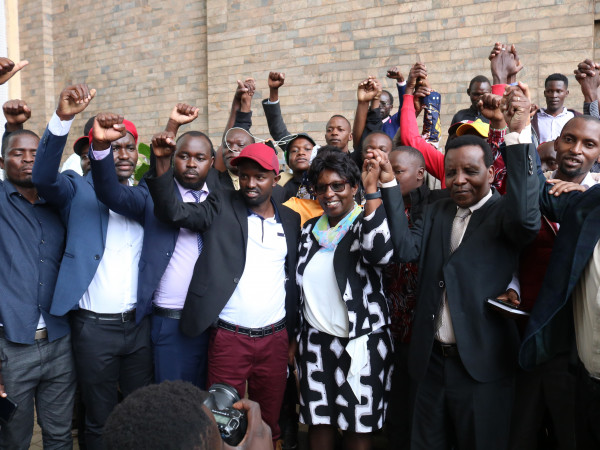IEBC unveils new tough rules for campaign funds

Hillary Mageka and Mercy Mwai
The national elections agency has proposed tough campaign finance rules which, if enacted, will compel political parties and individual aspirants to reveal their source of funds.
The Election Campaign Financing Regulations 2020, tabled at the National Assembly yesterday by Majority Whip Emmanuel Wangwe, will require political parties and aspirants to open specific bank accounts for campaign cash and will be audited if the money exceeds Sh5 million.
“A political party, candidate or any of the authorised persons shall open a bank account in a Kenyan financial institution for the sole purpose of the political parties elections campaigns or the candidate’s electoral campaign or referendum campaign,” say the proposed rules.
In case a candidate dies or withdrawals, the account shall be closed after all unpaid claims and surplus electoral funds, have been dealt with and a copy of the bank statement submitted to the Independent Electoral and Boundaries Commission (IEBC).
Candidates will also be required to give information on their donors, including proxies.
The regulations include details on sources of contributions, names of individuals and authorised persons to prepare a record of contributions as well as manage the campaign finances and records of expenditure.
According to IEBC, the new regulations seek to operationalise the Election Campaign Financing Act, 2013, which was suspended in the 2017 General Election.
“The instrument provides for regulations of campaign expenditures by setting out permissible sources of campaign financing, prohibited sources of campaign financing, regulation of loans advances for purposes of campaign financing, regulations of harambees and the powers of the authorised persons and the commission in relation to the contribution,” says the IEBC in a memo to Parliament.
The Act mandates the polls agency to provide for the regulation, management, expenditure and accountability of election campaign funds during election and referendum campaigns.
The regulations are geared to spell out spending limits for different elections, guidelines for expenditure rules for political parties and independent candidates and the manner in which contributions may be made.
Anonymous contributions
National Assembly Speaker Justin Muturi, while committing the regulations to the Committee on Delegated Legislation for consideration, said Sections 12, 18 and 19 of the Act empower the commission to set limits for contributions and expenditure by candidates and political parties participating in an election, at least 12 months before the election.
“You will agree with me that these are not just ordinary regulations, which may be the reason why Parliament provided that they are submitted to the House in draft form for approval before they are published in the Gazette Notice,” Muturi told the House.
In the new regulations, if the contribution mentioned was made by a contributor through a proxy, such proxies must disclose this to the relevant authorised person.
This, shall include, the name of the contributor, the postal address, identification number and PIN of the contributor.
Whether the contributor is a person not resident in Kenya, the amount of the contribution shall also be listed.
“Where the proxy does not disclose or is unable to disclose the information required under this regulation, then the contribution shall be treated as anonymous,” the regulations read.
The new regulations also require every candidate, political party or referendum committee to report and submit anonymous contributions to the electoral agency.
The commission shall gazette the limits beyond which contributions from a single source must be disclosed.
Besides, the commission may by notice published in the Kenya Gazette, vary any limits to donations or impose any other limits it might find necessary.
For money advanced to a candidate or political party, it shall be subjected to terms and interest rates available to the public.
“Any loan provided by any person other than an institution authorised to provide loans shall be considered as ordinary contributions,” proposes the agency.
A political party or candidate will also be required to keep a record of the amount of the loan, the terms and conditions for repayment of the loan.
And for any contributions exceeding Sh20,000, the political party or authorised person shall have a receipt and keep a copy of it.
It says: “In the case of any other contribution, record the identity of the contributor and the amount of the contribution.”
“A political party, national referendum or candidate shall be considered to have publicised the names of its authorised persons if the names are displayed in their respective offices or electronically through their official website.”
For an organisation that intends to campaign in support of, contribute to or otherwise directly incur expenditure in support of a political party, a candidate or referendum committee, the regulations state that the commission shall be notified within seven days of receiving consent from a political party, a candidate or referendum committee.
A supporting organisation may receive contributions and incur campaign expenditure for campaign purposes, it adds.
Election expenses
“A supporting organisation shall, through its authorised persons, maintain a record of all expenditures incurred for purposes of promoting the cause of a political party, candidate or referendum side,” the regulations read.
It adds: “The election expenses limit that is allowed for a candidate in a constituency shall form the base from which limits for other electoral areas shall be computed.”
The expenditure limits for county assembly wards shall be 30 per cent of the respective constituency, the expenditure applicable for county-wide elections shall be the sum of the applicable limits of all the constituencies falling within the constituency minus 30 per cent.
The limit for presidential elections shall be the sum of all constituencies nationally minus 40 per cent.
Currently, there are no limits on the amount a party or an aspirant can raise for campaigns and there is no requirement for disclosure of contributions from anonymous sources.











